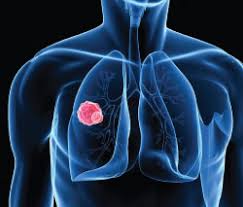
Diagnosed with Cancer? Your two greatest challenges are understanding cancer and understanding possible side effects from chemo and radiation. Knowledge is Power!
Learn about conventional, complementary, and integrative therapies.
Dealing with treatment side effects? Learn about evidence-based therapies to alleviate your symptoms.
Click the orange button to the right to learn more.
- You are here:
- Home »
- Blog »
- Lung Cancer »
- Blood Glucose & Lung Cancer
Blood Glucose & Lung Cancer

“Cancer cells use a lot of sugar to fuel their rapid growth and spread. This has led scientists to consider cutting off their sugar supply as a way to treat cancer.”
Why is it that conventional oncology research always seems to be five steps behind the rest of the world? Sugar has been shown to feed cancer for years. The studies linked below cite glucose feeding lung cancer cells.
- MM Cancer Survivor
- MM Cancer Coach
- Director PeopleBeatingCancer
Recommended Reading:
- Early Lung Cancer, SBRT if Surgery is Not an Option
- Breakthrough therapies-Lung Cancer
- Chemotherapy-Induced Pain-I.D. Manage
Lung Cancer Resistance: The Key Is Glucose Metabolism
“Focusing on glucose metabolism in a genetically engineered mouse model of lung adenocarcinoma, the scientists isolated tumor-associated neutrophils (TANs) and compared them to neutrophils from healthy lungs.
What they found was surprising: the TANs take-up and metabolize glucose much more efficiently than neutrophils from healthy lungs. The researchers also found that TANs express a higher amount of a protein called Glut1, which sits on the cell’s surface and enables increased glucose uptake and use…
Using X-ray microtomography to monitor adenocarcinomas, the researchers found that removing Glut1 from TANs led to lower tumor growth rate but also increased the efficacy of radiotherapy, a common treatment for lung cancer. In other words, the ability of TANs to metabolize glucose efficiently seems to bestow the tumor with the ability to resist treatment — at least in lung cancer…”
Blocking Sugar Metabolism Slows the Growth of Lung Cancer Tumors
“Blocking a pair of sugar-transporting proteins may be a useful treatment approach for lung cancer, suggests a new study in mice and human cells published today in eLife.
Cancer cells use a lot of sugar to fuel their rapid growth and spread. This has led scientists to consider cutting off their sugar supply as a way to treat cancer. The current study suggests this could be an effective approach but it will be necessary to block multiple pathways at once to be effective…
Insulin potentiation therapy
“Insulin potentiation therapy (IPT) is an unproven alternative cancer treatment using insulin as an adjunct to low-dose chemotherapy. It was promoted by a paper in the controversial and non-peer reviewed journal Medical Hypotheses.[1]
According to Quackwatch, “Insulin Potentiation Therapy (IPT) is one of several unproven, dangerous treatments that is promoted by a small group of practitioners without trustworthy evidence that it works.”[2]
Method[edit]
Generally, a dose of insulin is injected into a vein, followed by a low dose of chemotherapy drugs when the insulin has been absorbed. The chemotherapy dose is usually 10% to 25% of the proven dose.[3] Then sugar water is injected to stop the hypoglycemia (low blood sugar) caused by the insulin injection.[3]
Efficacy[edit]
IPT has not been proven to work.[3][4] Long-term outcomes, such as survival, have never been published.[3] Four individual case studies, one small, uncontrolled clinical trial and one small prospective, randomized controlled trial have shown temporary reductions in the size of tumors for some patients.[3]
Adverse effects[edit]
The immediate risk is hypoglycemia.[3]
The use of lower than normal doses of chemotherapy can cause drug resistance, which could make future treatment at standard, proven doses ineffective.[3] For some cancers, especially breast and colon cancers, insulin may promote tumor growth.[3]
Mechanism of action[edit]
Two main ideas about how it might work have been proposed. The first idea is that insulin makes cells more permeable, so that the chemotherapy drugs are absorbed faster into cells. The other idea is that insulin might cause the cells to start dividing, which makes them more susceptible to destruction of many cytotoxic chemotherapy drugs.
Cost[edit]
Costs run up to US$2,000 per treatment session.[3] Multiple sessions are normal. Patients often pay the full cost out of pocket, because it is an unproven therapy that is not covered by health insurance.


